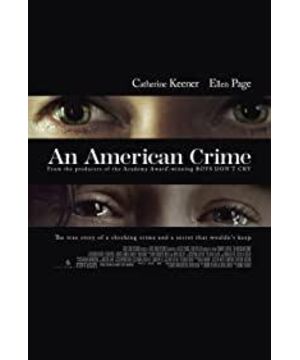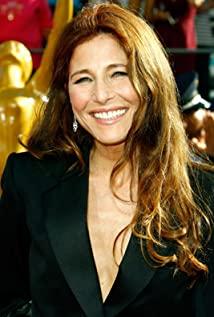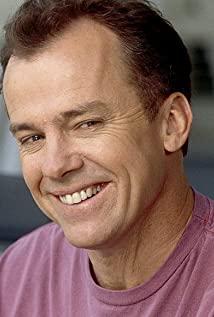I watched this movie for the heroine, but after watching it, I felt a chill in my heart.
The upper bunk asked me, which is the good guy and which is the bad guy? I can't answer. That's what makes me feel the most unbearable.
I remember watching "The Reader" (also directed at the heroine) before, and I felt that the heroine Hannah should not be the one who should be judged the most, but the morbid era at that time. She is such a determined, hard-hearted yet romantic person, and her mistakes are all down to her ignorance and her times. If she could, she could also be a gentle mother, listening to hymns every day and letting her children read to herself what they had learned that day. Find a lover and be the most ordinary German girl.
All she said she was in the Nazis or something was that she had to have a job. When refuting the judge's statement, she just said in a very serious tone, they paid me to watch them, should they be released?
She asked the judge in a really bewildering tone: "What would you do at that time?" The
judge was silent. Although the student who was next to the male protagonist at the time said it was impassioned, he looked righteous and dignified.
The male protagonist can't understand the student, and of course he can't, because the Hannah he knows is the one who always called him the child, always took care of him, always kept him warm, told him to study hard, and told him to read to her, he loved it. woman.
Because he knows, even just a little bit, that's why he is miserable.
Because she's asking, "What would you do at that time?"
What will people who haven't experienced that sinful era be judged for? Conscience or Law? And when these two things were placed in that era, could the judges themselves be able to guarantee that they would not violate them? So his generosity is nothing but a foolish ignorance.
The author writes Hannah so ordinary, so firm, so ignorant, and heartbreakingly ignorant. She spent her whole life concealing the truth of her illiteracy, panicking so firmly that we were moved. Although her sins are unforgivable - so it ends with her own suicide.
So I always feel that The Reader is a trial of the times.
"an american crime" completely shattered my judgment.
Are they ignorant? Is ignorance the capital of evil?
Are they poor? Is poverty the capital of tyranny?
Are they unfortunate? Is misfortune a sadistic capital?
If there are people who take pleasure in the suffering of others, then they should fall into the eighteen layers of hell and never be reborn. But they are all ordinary people, as ordinary as our neighbors, our relatives and friends.
The housewife is miserable because she gave birth to seven children, each of them needs to support themselves, earns so little money, and a concubine always comes to her for money; the eldest daughter is miserable because she is seduced by a married man , unmarried and pregnant; the children are in pain, the mother is nervous, and the father abandons them; the heroine's sister is also in pain, watching her sister being abused, but she never speaks out of fear.
They are not bad people in the ordinary sense, and it will be a matter of letting them never turn around.
Can ordinary people tolerate sin? Can ordinary people hear the piercing cry of pain and pretend not to hear it? Can ordinary people take their anger out on a weak child? Can ordinary people put such a big heart on a girl, burn a cigarette butt and abuse it with a Coke bottle? Can ordinary people see the pain of others and still laugh happily? Can ordinary people dare to call home when their sister was abused to the point of death?
But the film makes it very clear that these are ordinary people.
I have always believed in the bright side of human nature, because I have seen the shades of hope and beauty; but I also know the other side of human nature, cruel, tyrannical, seemingly innocent and indifferent. Even though I don't want to admit it, it's an indisputable fact that everyone has a devil in their hearts. It seems that it can come out to do evil so easily, and it can also make people smile while doing evil.
It seems that with an excuse, our evil thoughts are no longer evil thoughts, but only a kind of obedience, a kind of identification, and our evil thoughts will melt and become irrelevant to ourselves. Everyone does it, I do it too, what's wrong? There are always a thousand excuses for escaping.
Schopenhauer said that a considerable number of people cannot make their own judgments independently, but only blindly obey authority.
Yes, we always love it, someone can take the blame when it's at fault, and nothing seems to be more important than that. When it's wrong, it seems that it's enough to say "everyone is wrong".
So those times when Einstein was forced to flee to America and when Lao She was forced to sink in a lake can no longer be judged. If it can be attributed to one or two or a few people, then you tell me, you tell me, are the misguided people and the children wrong? Is there a reason for their cruelty? If not, should they be judged?
See, we love so much to make excuses and justifications for not knowing right from wrong.
The older I get, the more I feel that many things are understandable. We always used to pat our classmates on the shoulder and say that I understand and I understand. Yes, we are beginning to understand a lot of things that we didn't want to understand before. Yes, the things we despised before, now we want to pick them up and use them. We started to reconcile with a lot of things, even though we were annoyed by the reconciliation, there was still nothing to stop us from falling;
there are still many people who don't know what they are doing, they just follow others blindly, and if they are encouraged to learn, they will Study hard, practice hard if encouraged, and be happy and proud for a good reward—“they are too easily irritated and annoyed because they can’t properly tell what’s their interest and what’s their vanity.”
At that time, I was carrying what they gave up, like holding on to an empty castle. The oaths and declarations they had made before have long been scattered in the depths of time and have been abandoned by themselves. I stood in that empty classroom, listening to the tidal wave of applause next door, and wrote as hard as I could on the blackboard - "Forgiving them is the only thing ordinary people can do, but I decided not to forgive them. "
Forgiveness is a compromise, or I have to compromise a lot of things to live in the future. But "people" should have a bottom line. After crossing, I can't guarantee that I will still be alive in the future.
The last time I went out to dinner with the seniors, the senior said a sentence that I can't forget for a long time - "When you get to his level, you will do the same." It was a teacher who we all despise, and my friend next to me was silent. .
I clink glasses with the senior and he has always taught me the most.
I said, "I'm trying my best not to be like him in the future."
Finally , let's borrow Fu Lei's sentence in "John Christopher".
"The real light is never the time of never being dark, but never being obscured by the darkness. The true hero is never never having a humble sentiment, but never being succumbed by a humble sentiment."
View more about An American Crime reviews











